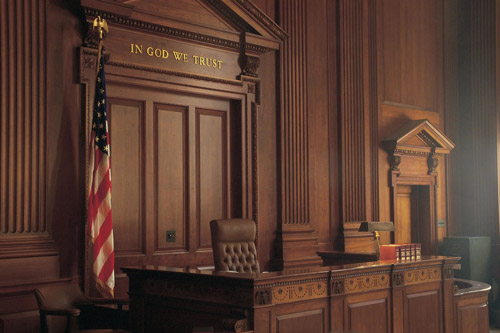CALIFORNIA DMV APS HEARINGS
ORANGE COUNTY'S "BEST" OR "TOP-RATED" DUI DEFENSE LAWYERS RATED BY SUPER LAWYERS, ORANGE COUNTY'S "TOP-RATED" DUI DEFENSE ATTORNEYS
Learn About the DMV License Suspension Proceedings
DEPARTMENT OF MOTOR VEHICLES APS HEARINGS
The California Department of Motor Vehicles' Administrative Per Se statutory scheme was created to quickly remove the licenses of those charged with DUI. Because the action is administrative, the rules of evidence are relaxed. Thus, nearly everything comes in. Also, the case is decided under a preponderance of the evidence standard as opposed to the proof beyond a reasonable standard used in court. The relaxed evidentiary standards allow the DMV to conduct the hearing without testimony from the arresting officer unless you subpoena the officer or witness to the hearing.
Additionally, the case is not decided by a judge or jury, it is decided by an employee of the DMV who serves as both the prosecutor and the judge. While there are some hearing officers who are able to fairly judge these competing points of view, many are unable to do so effectively. One can imagine that it is difficult to play both the role of the judge and the prosecutor then decide as to whom between the prosecutor and the defense prevailed on the actual issues. The Department bears the presumption, but the DMV APS hearings can be won.
In the event one does not prevail at the hearing, there is the possibility of pursuing judicial review by way of a writ of mandate, which is heard by an actual judge. DMV writs are complicated and, as a result, are often handled only by a group of attorneys who know how to handle these types of cases. Sometimes these cases continue on to the Court of Appeal or even the California State Supreme Court.
YOU NEED AN EXPERIENCED DMV/DUI DEFENSE ATTORNEY
Click to learn more about California APS Hearings from Attorney Peter F. Iocona, a recognized expert in California DUI Defense and DMV APS Hearings:
AN INTRODUCTION OF THE TYPES OF DMV APS ACTIONS
There are several grounds for a person to be served with an Administrative Per Se Suspension (APS) Order—They are as follows:
- Drives with a 0.01% or higher BAC while under 21 years of age. VC § 13353.2(a)(2).
- Drives with a 0.01% or higher BAC while on DUI Probation. VC §§ 23154 and 13353.2(a)(4).
- Drives with a 0.04% or higher in a commercial vehicle. VC §§ 13557(b)(2)(C)(iv) and 13353.2(a)(3).
- Drives with a 0.08% or higher BAC. VC § 13353.2(a)(1).
- Refuses to submit to or complete a chemical test pursuant to VC § 13353, or P.A.S. (“Preliminary Alcohol Screening”) test if under 21 or then on DUI probation pursuant to VC § 13353.1
AN OVERVIEW OF THE "ADMIN PER SE" HEARING ISSUES
The DMV must prove the following issues as a standard "Admin Per Se" hearing:
- That the peace officer had reasonable cause to believe that the person had been driving a motor vehicle in violation of CVC §§ 23136, 23140, 23152 and/or 23153
- That the person was lawfully arrested or detained;
- That the person was driving under any of the following circumstances:
- The person had a BAC of 0.08% or higher if over the age of 21;
- The person had a BAC of 0.01% or higher if under the age of 21 as measured by a preliminary alcohol screening test (PAS) or any other form of chemical testing;
- The person had a BAC of 0.01% or higher while on probation for a prior DUI conviction
See: CVC §§ 13558(c)(2); 13557(b)(2) and 23154.
AN OVERVIEW OF THE "REFUSAL" HEARING ISSUES
The DMV must prove the following issues at a chemical test refusal hearing:
- The peace officer had reasonable cause to believe that the person had been driving a motor vehicle in violation of CVC §§23136, 23140, 23154 (effective 1/1/09), 23152, or 23153;
- The person was placed under arrest or, if the alleged violation was of CVC §§23136, 23140, or 23154 (effective 1/1/09), the person was lawfully detained;
- The person was advised that a refusal would result in a suspension or revocation of the driving privilege; and
- The person refused or failed to complete the chemical test or tests after being requested to do so by a peace officer.
See: CVC § 13558(c)(1).

ADMINISTRATIVE PER SE HEARING PENALTIES
For a first offense Orange County DUI, the licensee is exposed to a four (4) month administrative suspension that can be modified to a license restriction after thirty (30) days of hard suspension, which means no driving whatsoever. Thereafter the licensee is on a restriction for a period of five months; however, this restriction can remain in effect longer depending on when the conviction occurs.
Changes in the law effective January 1, 2019 make it possible to avoid the 30-day hard suspension by installing an Ignition Interlock Device (IID) with certain conditions being satisfied, i.e., proof of enrollment in a DUI Program (DL-107 Form), an SR-22 (Proof of Financial Responsibility), Proof of IID Installation (DL-920 Form), and payment of the appropriate reinstatement fees.
For a second and third offenses, the license is exposed to a one-to-three year suspension that is able to be modified to a ignition interlock device (IID) restriction on a second and third offense DUI and the ability to qualify for the driver's license restriction is based on a DMV APS Hearing suspension or a conviction for DUI in most if not all circumstances.
Law changes that became effective January 1, 2019 make it possible to obtain the Ignition Interlock Device (IID) restriction without the existence of a conviction with proof that the person is enrolled in an 18-month California State Approve DUI Alcohol Program (DL-107 Form), an SR-22 (Proof of Financial Responsibility), Proof of IID Installation (DL-920 Form), and payment of the appropriate reinstatement fees.
REFUSAL ALLEGATIONS AT DMV AND COURT
Refusals are the most difficult cases to defend at the DMV, and as such, oftentimes result in the need to take a writ of mandate to obtain justice. The defenses to a refusal are limited based on over 50 years of case law. You need an attorney who is skilled in defending these types of allegations.
To learn more about DMV APS Hearings based on a presentation presented by Peter F. Iocona of The SoCal Law Network click the link below to learn more about each of the topics presented in the title. This presentation has been given to DUI Lawyers throughout the State of California and are being provided to our visitors via this website.
DMV APS Hearings - An Overview of DMV APS Hearing Actions
DMV APS Hearings - Examining the Issues & Sub-Issues
Orange County DUI Attorneys Providing DUI Defense in Orange County - Laguna Hills, Laguna Beach, Orange
CALL NOW!
FREE CONSULTATION: (949) 235-2250



